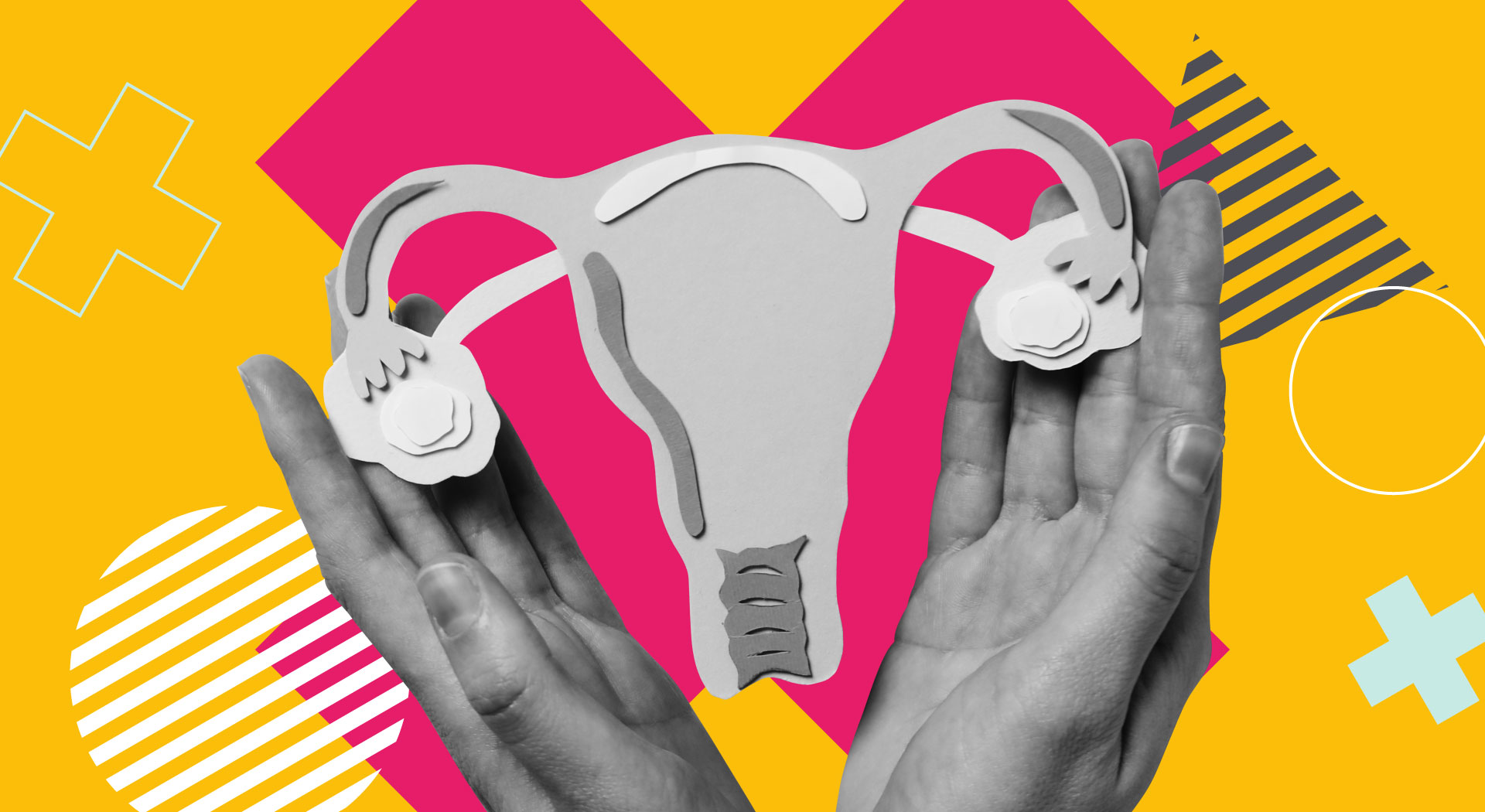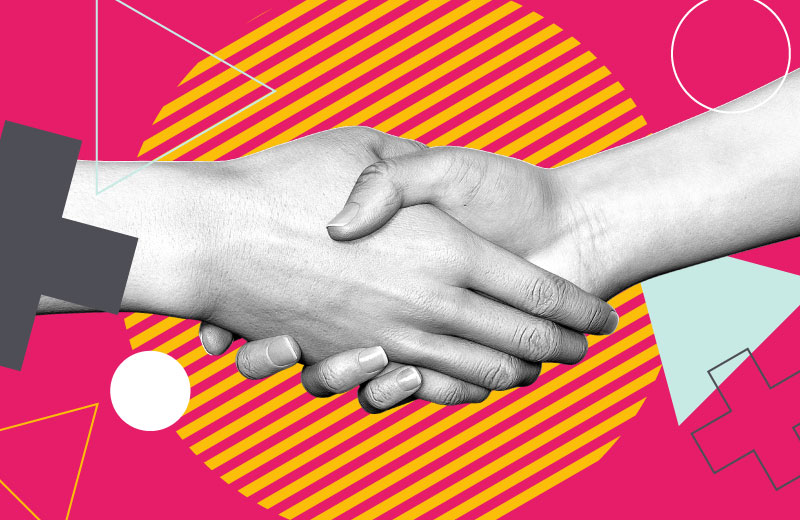

Who do you picture when you imagine a menopausal woman?
Someone with grey hair? Wrinkles? Retired?
Washed up, shrivelled up and useless?
And why have you arrived at that?
Is it because often, when we look at advertising and marketing, that’s what we see?
At the tender age of 43 years old, I’m already 5-6 years into perimenopause, and I have a big problem with menopause representation.

What is menopause?
Menopause is determined by the absence of periods for a continuous 12 months. I won’t know when or if I’ve already reached it, as I have a Mirena coil and no longer menstruate. The average age for menopause in the UK is 51 years old, but as I started early and the average length of perimenopause is 5-10 years, I’m likely to finish early, too.
Perimenopause is the bit before periods stop, where hormone levels fluctuate, with an overall downward trend. There are many symptoms ranging from the well-known ones like hot flashes and mood swings to others like extreme exhaustion, suicidal ideation, brain fog, dry skin and eyes, muscle and joint pain and migraines. It can be debilitating, as I discovered two years ago when my hormone levels took a sharp drop, and I was unable to function or work until I started on HRT.
Not many people my age in my social circle are on HRT like me, but a few women have said they’ve started experiencing symptoms and are in perimenopause. Reaching out on Facebook support groups reveals I’m far from alone in being this far along in my menopause journey in my early 40s. Even people going through perimenopause at an average age and speed are very likely to be in perimenopause throughout their 40s.
What’s my beef with menopause marketing and representation?
If so many people are in perimenopause in their 40s, both those who have started early like me and those who are comfortably in the “average” group – why do we not see more women in their 40s in menopause advertising and media?
What about those fully in premature menopause? There is no “too early” for premature menopause. What about women who have had to go into medical menopause, for example, to combat endometriosis or after cancer treatment? That can happen at any age. What about trans people? Their experiences are valid and different to cisgender women.
I have noticed that advertising for menopause products is improving in terms of showing a diverse range of races and body types. The women depicted are vibrant, energetic and happy. This is great to see, but it’s not fully inclusive. The women are almost universally in their 50s and 60s. Where are the 40-somethings?
That’s when it’s good.
When it’s bad… it’s photos of elderly hands being held by carers!
Which makes me really, really angry because it’s inaccurate and damaging! Clearly, a senior citizen in a care home would be POST menopausal.
I’m in perimenopause! I’m not in a care home! I’m middle-aged! MIDDLE-aged - as in, hopefully, I’m still only halfway through my life! It will be a long time before I retire – my kids are still at school!
Where the hell am I in all of this? I don’t see myself in the imagery associated with menopause in marketing and the media.
Progress is being made, with people like Davina McCall, Dr Louise Newsom, and Dr Nighat Arif frequently discussing menopause in the media. However, menopause wasn’t talked about freely until the last few years. The medicalisation of menopause wasn’t complete until the 1970s, and menopause is still viewed negatively here in the West.1 The gender health gap means menopause is another female health condition that has been neglected2, meaning sufferers find it hard to receive adequate support. 75% of clinicians in the UK do not receive regular menopause training3, which is wild when you consider menopause has, is or will affect 50% of the population.
It’s not much of a jump to think that Western society’s historically patriarchal views of female health issues go hand in hand with patriarchal views of women. Is there a common subconscious bias that when women reach menopause, they are useless and shrivelled up because they can no longer bear children? I’m sure most people don’t consciously believe that (apart from the Andrew Tates of this world, who clearly need to… let’s be polite and say they need to go somewhere else), but we’ve had generation after generation of women’s value being determined by how they can serve men.
While it’s refreshing to see menopause being talked about, we need to go further.

Why accurate representation matters
Representation is important for all marginalised groups. In this article, I’m writing about my experiences with menopause representation because that is affecting me, but the effects of inaccurate representation and the positives of proper representation are similar for all groups.
When I look at menopause marketing and media that doesn’t include people who resemble me, two things happen:
- I feel even sadder and older about reaching this life stage a little early; it feels like I shouldn’t be here already. Even though I’m not here that early, I’m not old. It is a natural, inevitable life stage all uterus owners will reach, and there are plenty of other positives about reaching later life stages, like experience and expertise.
- I feel like I don’t need to buy those products because I have no emotional connection to them. I’m not represented, so it doesn’t feel like the products are for me, even though they are.
I’m not alone in feeling like this!
IPA’s report “The Menopause: The change we need to see”,4 shows that around two-fifths of women feel that the advertising targeted at their stage of life is unreflective of their life or that of their friends (46%); uninspiring (45%), outdated (43%) and not relatable (41%).
Oh dear! And if that many menopausal people are feeling like that, it’s highly likely they’re feeling like I do and not buying.
That’s a big group of people, many of whom have careers and plenty of disposable income, to ignore! Menopause brands are leaving money on the table!
Not only that, but it’s a wasted opportunity to drive for positive change. Brands have more power than governments to make a difference5, so it’s vital that marketing campaigns are designed in impact-conscious ways.
If menopausal people are proerly represented in the media and marketing, several big positives will happen:
- Societal expectations will start to shift, meaning people will be better informed of the enormous range of perimenopause symptoms and will be better understood and supported in that phase of life. I started to experience symptoms around age 38 – it’s important women in their 30s and even 20s start to learn what the symptoms are so they know what to do when their time comes, rather than thinking they are losing their minds as I did! I have been told that is quite normal due to the fluctuation and severity of symptoms – but if we’re all better informed, we’ll be questioning our hormone levels, not our mental capacity!
- Menopausal people like me won’t feel old before their time or alone. It’s hard enough navigating the wide-ranging and sometimes crippling symptoms without having to feel additional negativity.
- Brands might ask, “What’s in it for us?” More sales are the answer! If brands accurately represent their audience, they show that they see and understand them. This encourages trust, which is essential in making sales. It’s a no-brainer, especially for brands that do it first!

The next stage
Representation for all groups is important to help drive equality, knowledge and support, leading to a fairer society and happier people.
If brands want to make sales, they need to represent their audience accurately to help show understanding and build trust.
It’s not that difficult for menopause marketing and media – show a few younger women for a start! Think about who else might benefit from your product or service. For example, would trans folk benefit as well? If so, represent them!
Check with research and focus groups to ensure the people in your marketing are accurate and indicative of your audience. The people responsible for the Daily Fail menopause article that included a photo of elderly hands being held by a carer—I’m looking at you!
A partnership made in heaven?
Feeling inspired? We'd love to help! We are a team of collaborators that enjoy nothing more than partnering with ambitious clients. Get in touch if you'd like to talk through your next project or get some advice.
1. https://pubmed.ncbi.nlm.nih.gov/15981376/
4. https://ipa.co.uk/news/menopause-the-change-we-need-to-see




